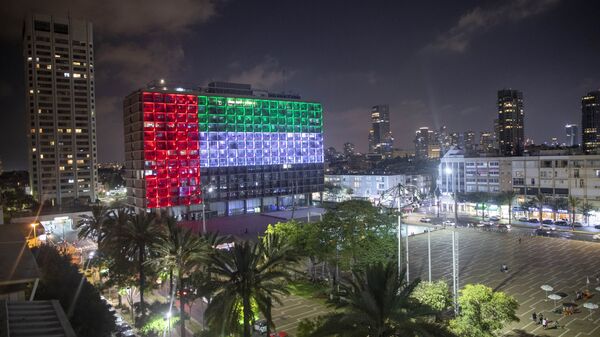Trump told reporters at the White House that "a good deal was the deal we made with UAE and Israel" last week and asserted that other countries “want to come into that deal," later clarifying that he envisioned Saudi Arabia following suit.
"I see a lot of countries coming in fairly quickly, and when you have them all in, ultimately Iran will come in, too," Trump said. "There'll be peace in the Middle East."
The statement came after Trump promised to reimpose UN sanctions against Iran, saying they would force Tehran to the negotiating table.
Some critics have noted that rather than bringing Iran into the deal, the purpose of the Israel-UAE pact is to move closer to forming a united front against Iran, which is their mutual enemy as well as Riyadh's.
When Israel was formed in 1948, no Arab nation would do business with Tel Aviv, pending recognition of a Palestinian state, as the original United Nations partition plan for Palestine had envisioned. However, while some nations such as Egypt and Jordan have normalized relations and made peace, 17 of the Arab League's 22 member states still refuse to recognize Israel, such as Saudi Arabia and, until last week, the UAE.
When Abu Dhabi agreed to normalize relations on August 13, Israel paid a steep price: cancellation, at least temporarily, of its plans to annex nearly one-third of the West Bank near the River Jordan.
After the 1979 revolution, Iran's new cleric-led government rescinded its recognition of Israel, which had been a political partner against mutual Arab rivals under the ousted shah.


